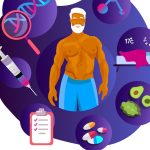Eating less than three meals a day may protect you from type 2 diabetes
Time-restricted eating, a form of fasting where you eat fewer but regular meals within a specific time window and avoid eating for 12 to...
Herbal supplements for controlling type 2 diabetes
Type 2 diabetes is a condition where the body struggles to regulate blood sugar levels effectively.
While traditional treatments like medication and lifestyle changes are...
Can vitamin supplements help prevent diabetes?
Diabetes is a growing health concern worldwide, with millions of people affected by this condition that can lead to serious complications like heart disease,...
Coffee and diabetes: the benefits and drawbacks
For many people, the day doesn't truly begin until they've had their first cup of coffee.
However, if you have diabetes or are at risk...
Eating red and processed meat linked to higher risk of type 2 diabetes
A new study has found that eating red and processed meat is linked to a higher risk of developing type 2 diabetes.
The research, published...
Best and worse fruits for people with diabetes
Living with diabetes often means navigating a complex dietary landscape. One common question that emerges is, "Can I eat fruit?"
Given the sweet nature of...
Balanced low-carb diet can improve type 1 diabetes control
New research from Sweden offers encouraging news for people with type 1 diabetes: a moderate low-carb diet can help maintain blood sugar levels within...
Avocado is a green ally against diabetes
In recent years, the humble avocado has risen from culinary favorite to a superstar of health foods, celebrated not just for its creamy texture...
How diet and exercise can prevent type 2 diabetes in everyone, even those at...
A groundbreaking study from the University of Eastern Finland has shown that a healthy diet and regular exercise can prevent type 2 diabetes, even...
Foods to avoid for better management of high blood pressure and diabetes
Managing your diet is crucial when dealing with high blood pressure and diabetes.
Both conditions are heavily influenced by what you eat, and certain foods...










